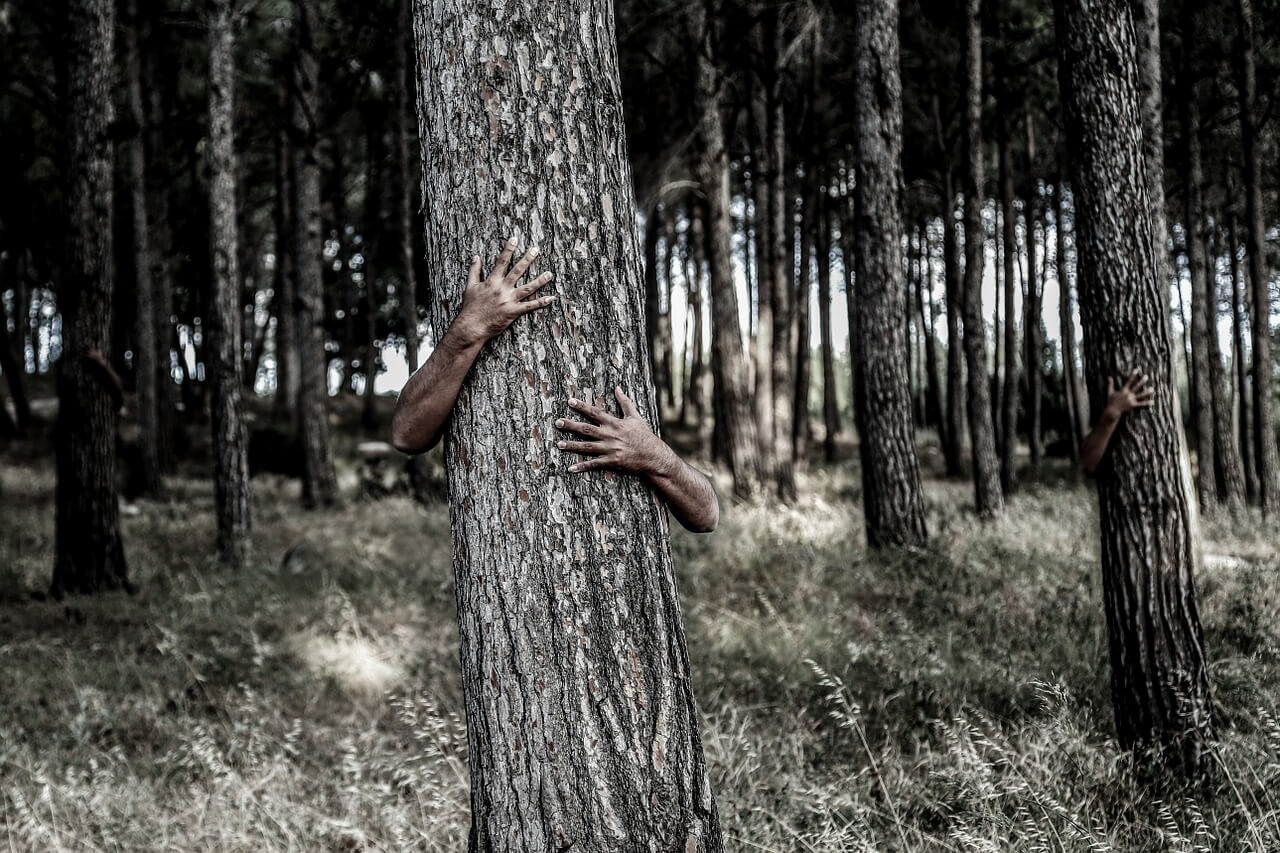Eating Disorders | Hiding In Plain Sight

Having an eating disorder is a tough journey, and one that many people in our society face. While it can be comforting to know that there are others out there experiencing similar feelings, it’s also scary how often eating disorders go unnoticed by the people around us.
Could your best friend, the one who constantly expresses dislike of her body, have an eating disorder? What about your aunt, the one you never see eat, even at the family cookout? How about your brother, your coworker, the person you sit next to on the bus? Perhaps even you.
Experiencing an eating disorder is not a one size fits all, and often feels like fighting an inner battle, while still maintaining a happy-go-lucky attitude, being put together, perhaps a full face of makeup and a smile. Essentially a veneer to hide that your very insides are crumbling. In this world of social media, with it’s instant access to models, celebrities, and Instagram bodies, it can be hard not to compare bodies, lifestyles, and health habits.
The seemingly endless stream of selfies and unrealistic body images can compound over time, and grow into an unrealistic body image standard. You can take a body positive selfie, and learn techniques to help you or a loved one cope with an eating disorder.
If you are suffering from an eating disorder or struggling in your relationship with your body and food, please reach out to a professional as soon as possible to get help.
Who Experiences Eating Disorders?
Statistics provided by the National Eating Disorder Association (NEDA) indicate that 10 million American women suffer from eating disorders. One in 200 American women suffers from anorexia, and two to three in 100 American women suffers from bulimia. According to Eating Disorder Hope, 2.8 % of American adults will struggle with BED (Binge Eating Disorder) during their lifetime.
These staggering numbers are meant to showcase how common eating disorders are, and how many of your close friends and family members might be suffering in secret. Eating disorders are notoriously complicated, and can be hard to diagnose because they look different for everyone.
Women, men, old people, young people, chefs, car salesmen, doctors, teachers, LGBTQ+, grandmothers, mail carriers, and many, many more people suffer from eating disorders. Eating disorders are sneaky illnesses, and one that can consume you, if you don’t seek help.
Below are a few signs that you or someone you know might be trying to hold it together on the outside, but are actually falling apart on the inside from an eating disorder.
How Can You Tell if Somebody Has An Eating Disorder?
As it turns out, spotting an eating disorder is a difficult task. There are often many physical signs of an eating disorder that are easily noticed, but just as many that go unnoticed. There are also health complications that are not visible to the naked eye yet tell the story of the havoc an eating disorder can create. Social and relational changes can also occur in those struggling with these illnesses as well.
In our Western society, eating healthy, losing weight, being vegan, over exercising, hating our bodies, and refusing baked goods at work are all praised as excellent choices— and they often are– but what happens when the person in question has an eating disorder? Are they still encouraged to not eat the cake?
Yep, you guessed it…
It is so difficult to tell who has an eating disorder. Individuals are often still praised, which only further reinforces our society’s desire to pigeonhole people into an “acceptable” body type, which can exacerbate the eating disorder.
Even a seemingly innocuous comment or offhand remark can cause great collateral damage. The “I wish I was like you” or “you are so good abstaining from…” or even the “I’d kill to have your willpower” can be fuel for the eating disorder.
Here’s an example, imagine two people refuse a piece of cake at an office party. One might be refusing because she’s wanting to take a slice home to enjoy this evening, while the other might refuse it because she is in the midst of another episode of her recurring restrictive eating disorder.
Do you see what I mean? It is complicated, and unless you’re an eating disorder therapist, it can be very difficult to determine who experiences eating disorders.
Secret Stigmas of an Eating Disorder
While eating disorders like anorexia, bulimia, binge eating disorder and others often go unnoticed, it’s not always the fault of family and friends for a lack of awareness. As mentioned previously, eating disorders are very difficult to determine, and will express themselves differently for everyone.
Feelings of shame often co-occur with eating disorders, and many sufferers experience a desire to keep the disorder private. Eating disorders thrive on secrecy, privacy and isolation. Individuals who are struggling typically employ a few tricks to prevent family and friends from discovering the secret. Keeping disorders hidden from loved ones and friends is a constant charade, leaving the person feeling lonely in the disorder while the disorder is pulling them deeper into it’s tight grip away from recovery.
But, what are some of the incorrect stigmas that result in turning a blind eye to eating disorders?
- Eating disorders do not have a weight limit, and often stigmatized as only for the thin. Being thin doesn’t mean that you have an eating disorder, and having an eating disorder doesn’t mean that you’ve got to be thin.
- They have the perfect life. If you see them on social media, enjoying a picture perfect life, it might be true– but sometimes it isn’t. They might be trying to hold it together on the outside, through social media or other ways of painting the perfect picture, but are truly falling apart on the inside.
- Using the guise of “healthy eating” or a restricted diet to cover up an eating disorder. Many people are successfully vegan, vegetarian, gluten-free, etc. without experiencing the devastating effects of having eating disorders. It is often the case that people suffering from eating disorders use socially acceptable dietary restrictions to help normalize their own personal restrictions and rules, to help them avoid questions and blend further into otherwise awkward social situations.
Unfortunately, there are many other stigmas, sometimes underlying denial and unfamiliarity that prevent loved ones from recognizing an eating disorder in a close friend or family member. Stay tuned for more information on this in future blogs.
If you’re experiencing an eating disorder or suspect that your loved one might be, please reach out to an eating disorder therapist for help.
How To Find an Eating Disorder Therapist Near Denver, CO
It can be scary to confront a friend, loved one, or significant person in your life about a possible eating disorder. Talking with a trained eating disorder therapist can help you determine how aggressively to address the problem, and the most compassionate way to confront the eating disorder.
If you start to notice signs, I urge you to talk to someone. Notice, pay attention, and seek help if you need it (either for yourself, or a loved one). You can work with a trained eating disorder therapist to devise a plan together to offer you and your loved ones the support and help you need.
If you or someone you know is suffering from an eating disorder, contact an eating disorder therapist right away. Call 720-306-1631 to set up your free 30 minute consultation where we can check in with what’s present for you and you may ask a trained eating disorder therapist any questions you might have. Feel free to reach out however it is most comfortable for you.
© Erica Faulhaber 2018 – This blog may be shared or reprinted as long as the information is unedited and the author bio, including contact information is printed along with the blog.

 Erica Faulhaber PhD, NCC, LPC, CEDS, EMDRIA Approved Consultant and Certified EMDR Therapist. She is a therapist in Erie, Colorado who helps women struggling with trying to be perfect all the time. New Directions Colorado, is a therapy practice that specializes in eating disorders/disordered eating, trauma and Eye Movement Desensitization and Reprocessing (EMDR).
Erica Faulhaber PhD, NCC, LPC, CEDS, EMDRIA Approved Consultant and Certified EMDR Therapist. She is a therapist in Erie, Colorado who helps women struggling with trying to be perfect all the time. New Directions Colorado, is a therapy practice that specializes in eating disorders/disordered eating, trauma and Eye Movement Desensitization and Reprocessing (EMDR).
Love this post. You are so right that as a society we often idealize the thin body which means that we inadvertently praise the eating disorders related to it.
Hi Christy,
I am so glad you loved this post. The messages we receive help feed the eating disorder. We can all work on the messages we convey to loved ones. Thank you for taking the time to read this post. Take good care!
~Erica
I love this blog post because it offers such great education about eating diorders. Many people are suffering in silence and need a great therapist to help them work with their food issues and deal with healing the trauma underneath. You’re helping so many people!!
Hi Katie,
I am so glad you enjoyed this post. Suffering in silence is something I am striving to help others get away from. Thank you for taking the time to read this post. Take good care!
~Erica